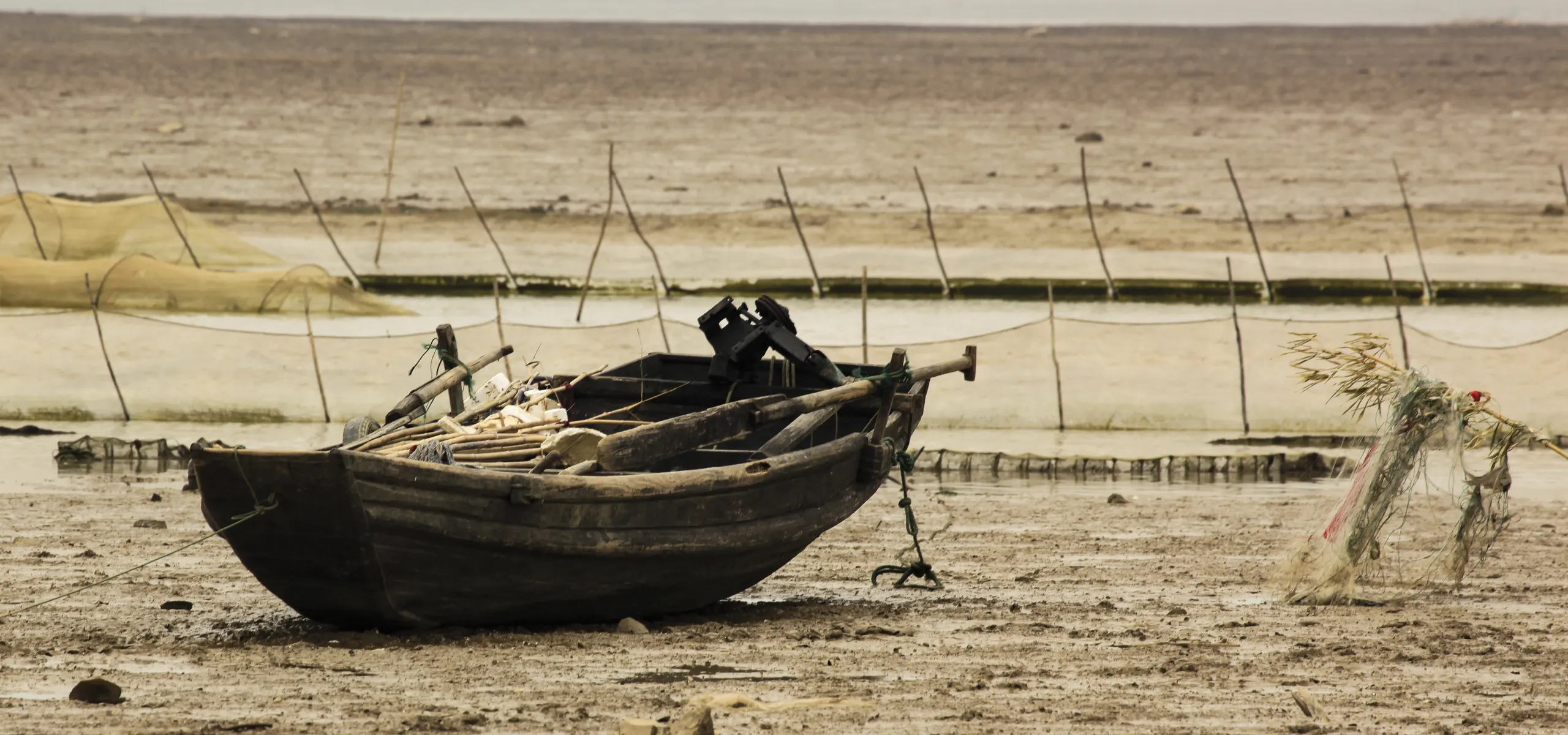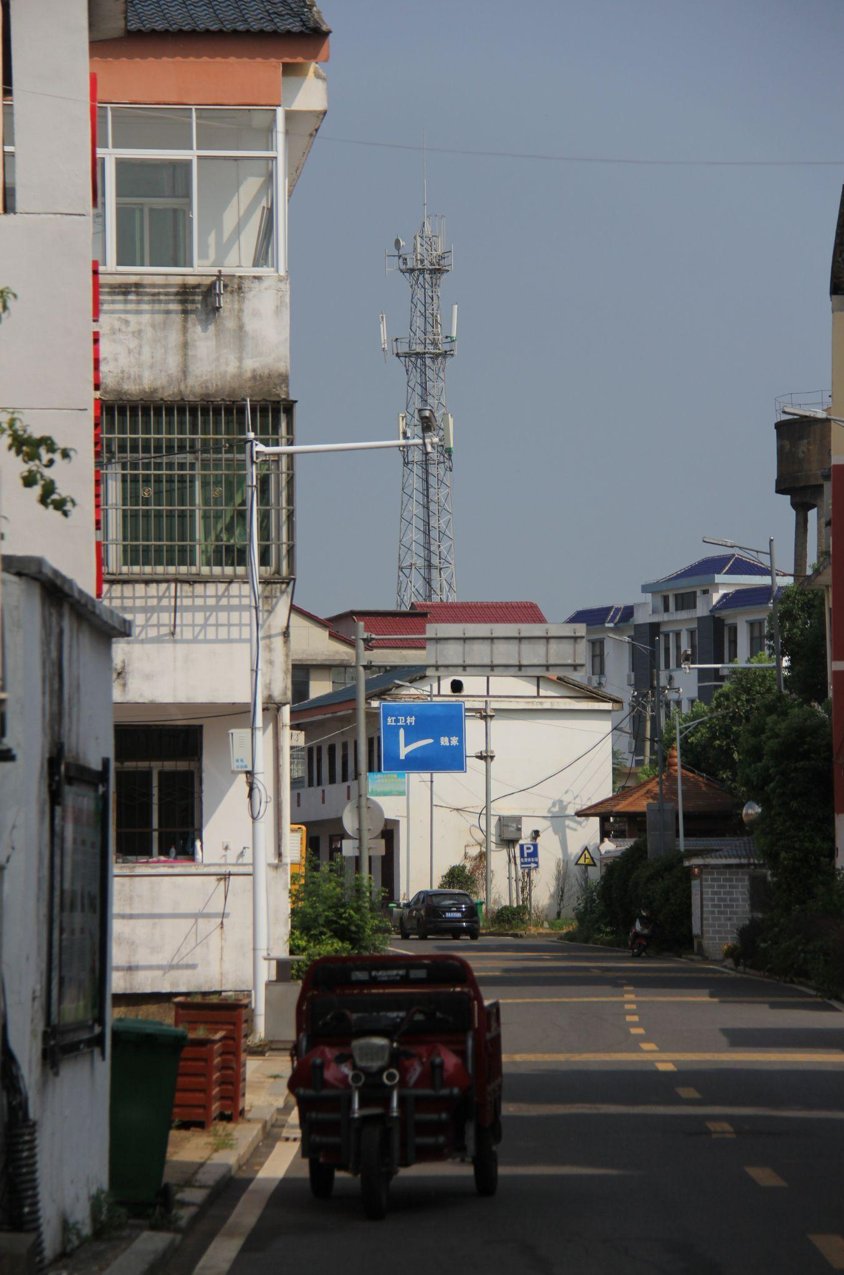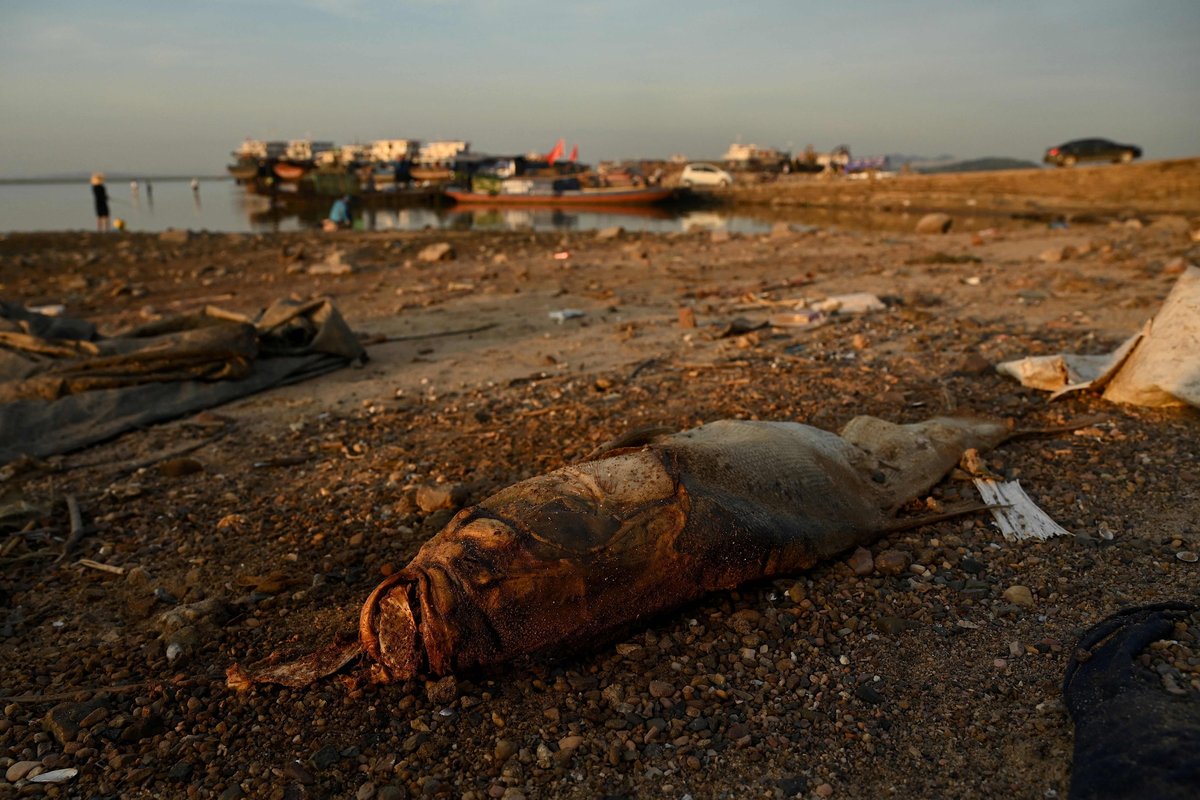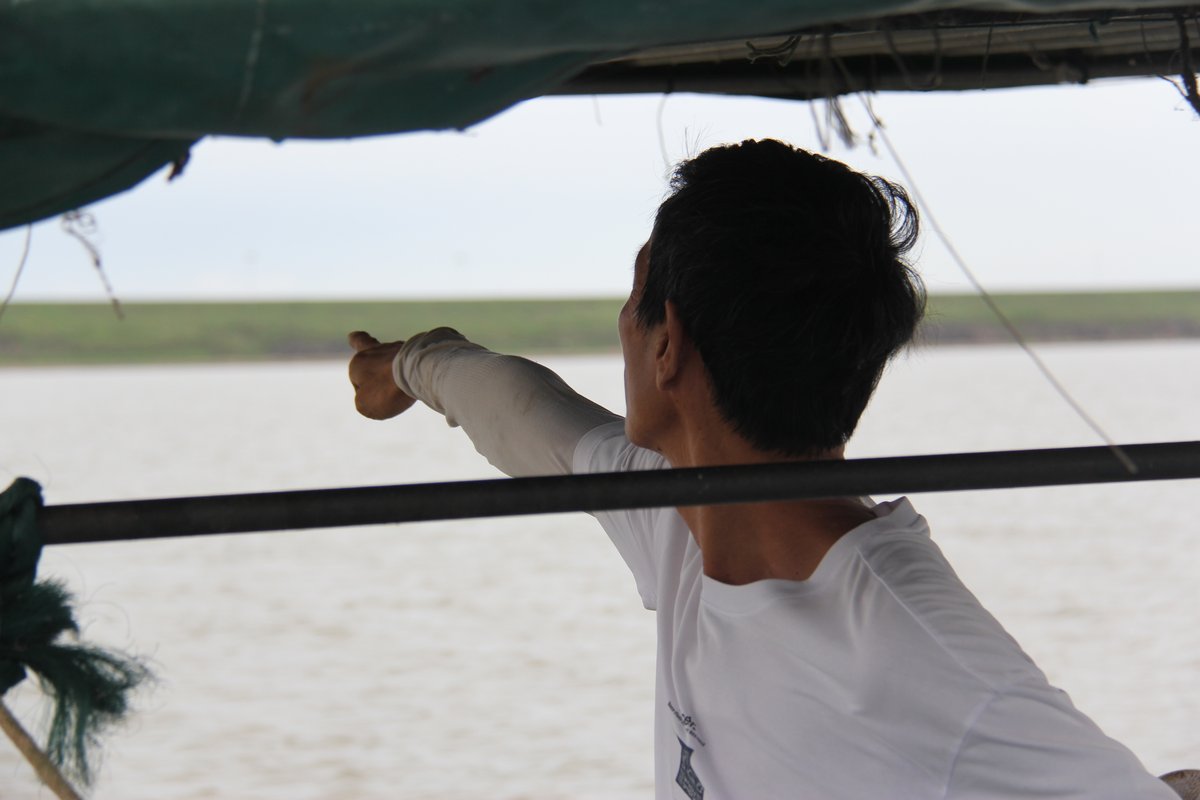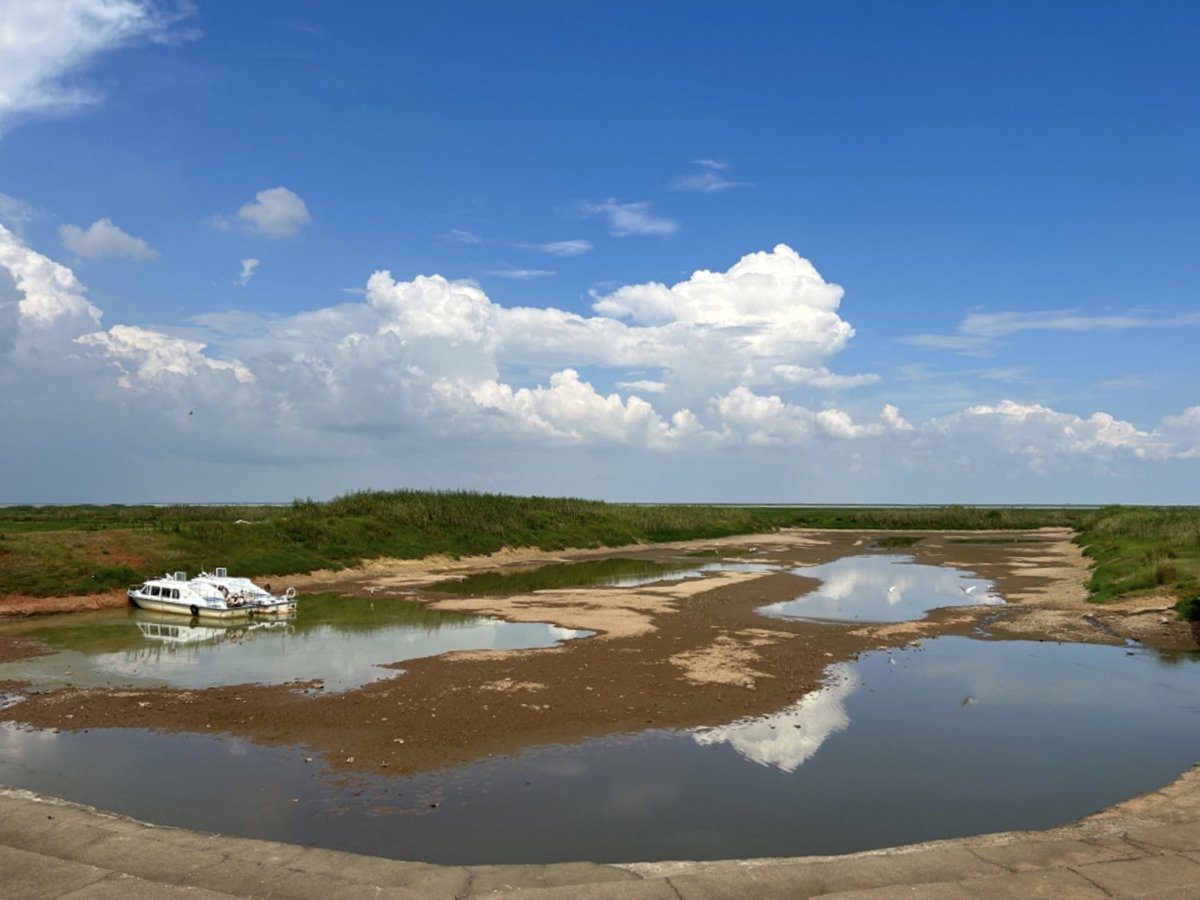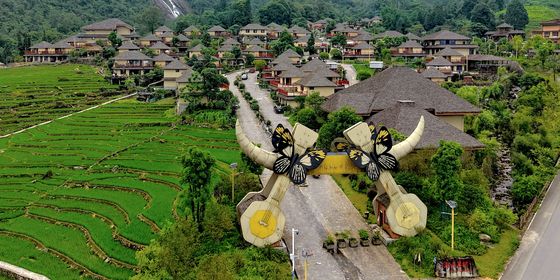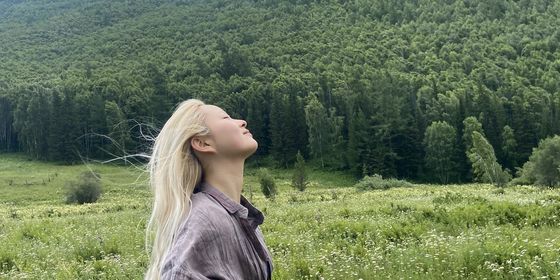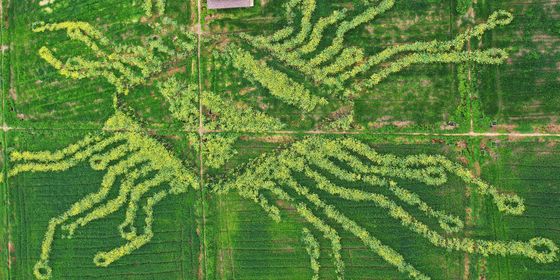More than three years on from a fishing ban on Poyang Lake, one fishing community is still straining to reinvent itself
Jiangxi province’s Nanji township was once home to three thriving fishing villages. Now, the picturesque communities on the banks of Poyang Lake are almost deserted. Hotels stand empty or abandoned, and the two schools have only a handful of students each, according to one resident. No one is out on the water with their fishing nets.
On a sweltering day in August this year, a few villagers wander around the otherwise empty streets in the summer sun. “My guesthouse used to make 200,000 yuan a year,” Zhang Juan, a middle-aged former fisher (who agreed to be interviewed under a pseudonym) in Xiangyang, one of the fishing villages in Nanji, tells TWOC. “But now it barely brings in anything.” Tourism has collapsed since 2020, Zhang recalls. “Of course, Covid hit hard, but we also lost our main attractions—the wild fish cuisines and leisure fishing activities—as no one can fish anymore.”
It has been three years since a fishing ban was imposed on Poyang Lake (China’s largest freshwater lake) and two years since this was expanded to a nationwide fishing ban on the entire Yangtze River—which Poyang Lake flows into. While fish stocks replenish, birds thrive, and even the once-rare Yangtze finless porpoises return to Poyang in numbers, locals in Nanji are struggling to adapt. Without fishing, the community has thinned, villager’s finances have taken a hit, and most residents have left to find work in faraway cities.
Lake town
Nanji, located on the southwest edge of Poyang Lake, a two-hour drive from the provincial capital Nanchang, had a population of 3,289 in 2010. Nowadays, there are only around 300 residents remaining. “All the young people have left our town because there are no job opportunities here,” Chen, a local in her 70s who only gave her surname, tells TWOC as she rests beneath the shade of a camphor tree in Xiangyang. This trend was already evident before 2020, but the fishing ban accelerated the process, Chen says.
Before that, most of the residents in Nanji relied on fishing, in one way or another, for their livelihood. During the wet season, from May to September, Nanji is often cut off from the shore by water that can rise up to 20 meters high. Fishers would venture onto the lake with nets and baited baskets to catch grass carp, silver carp, Chinese perch, and other fish. During the rest of the year, when the water level falls, fishers in Nanji and elsewhere around Poyang Lake use a method known as “Zhanqiuhu” to trap and harvest fish, crayfish, and clams in sub-lakes cut off from the main body of water.
Tourists used to visit Nanji to fish, savor the freshest catches, and engage in bird watching within the Nanji Wetland National Nature Reserve (established in 1997), which encompasses the Nanji township. According to research by Hu Binhua at Jiangxi Agricultural University, Nanji residents could make approximately 7,100 yuan per month on average in 2010. The average national monthly income for the rural population was just 5,919 yuan in that same year.
“Back in 2014, there were so many tourists. That’s when we started our business,” says Zhang. She claims that there used to be 60 guesthouses like hers in Nanji. Now, in the absence of fresh fish, she keeps a small brood of ducks and geese to supply her restaurant, one of only three or four remaining in the township.
The fishing ban changed everything. Jiangxi province prohibited fishing on Poyang Lake in January 2020, a year before the Ministry of Agriculture and Rural Affairs (MARA) announced a 10-year ban across the whole Yangtze River to restore the vital waterway’s ecology. As part of the ban, nearly 300,000 fishers, including those from Nanji, surrendered their fishing gear and boats to local authorities in return for compensation.
No longer able to fish, many locals moved away to look for work. Former fisher Wan, who only wished to give his surname, left Xiangyang in 2021 to become a van driver in Nanchang. “When there’s work, I can earn 200 to 300 yuan, but on other days I’m stuck at home,” he tells TWOC. “It’s the same story for other folks at the construction sites,” he says, referring to other former fishers who now work in the provincial capital. “They engage in hard labor but only make 100 to 200 yuan a day, and construction work isn’t available every single day either…We are just beggars in the city.”
According to a report by MARA released in June this year, the average annual net income for fishers in China, most of whom only work a few months a year and have no rent to pay since they live in their own homes often in villages, was 24,614 yuan in 2022.
Saving the ecology
Overfishing and rampant sand mining over several decades have severely damaged the ecology of the Yangtze River, and Poyang Lake in particular. Chemical pollution, rising water turbidity, and the subsequent decline of river-bed dwelling creatures have all decimated the fish population. In the 1950s, fishers could catch around 430,000 tons of fish from the Yangtze River annually, while in 2019, using more sophisticated equipment, they caught less than 100,000 tons.
In 2020 (one year before the Yangtze River ban came into force), Beijing News reported that the lack of fish had forced some fishers to illicit fishing methods such as electrified fishing nets, which in turn accelerated overfishing. In 2022, the International Union for Conservation of Nature declared the Chinese paddlefish extinct and the Yangtze sturgeon extinct in the wild. Since 1997, approximately 33 fish species have disappeared from Poyang Lake, according to state media outlet Jiangxi Daily.
The dwindling fish stock also threatened hundreds of thousands of migratory birds, including various crane species and Tundra Swans that use the wetlands around Nanji as a winter stopover on their journey from Siberia to Australia, and feed on the lake’s fish.
In response, the Jiangxi provincial government enacted a series of regulatory measures, ranging from seasonal fishing bans and fishing gear limitations in the early 2000s, to nationalizing sand mining activities in 2019.
However, these had limited success according to Wan: “The seasonal ban enforcement was loose; way too loose. Bold people went fishing during the ban…And if one person went one night and earned 200 yuan, I would go the next night with them.”
A compensation scheme launched in 2013 by the Nanji Wetlands National Nature Reserve (which was upgraded from a provincial to a national level reserve in 2008) offered money to fishers for each migratory bird residing in the sub-lake they fished during the dry season. But, according to multiple residents TWOC spoke to in Nanji, the compensation was lower than what villagers could earn from fishing.
The 2020 ban, however, has been strictly enforced by new administrative departments, and the ecosystem is already showing signs of recovery. According to a 2022 study by researchers from Anhui University, fish migratory patterns had returned to normal and fish population diversity had already grown just a year after the ban.
On a patrol boat on the lake, Yuan Wenbin, a Yangtze finless porpoise habitat ranger from Kangshan township (which is across the lake from Nanji) is on the lookout for wildlife. A former fisherman, Yuan became a ranger protecting porpoise habitats after the fishing ban. Environmental NGOs and foundations pay his salary and support his work. As the boat skips along the water, porpoises are visible in the distance, while dozens of fish as long as a human arm jump from the water, with some even landing in Yuan’s boat.
“[Since the fishing ban] the porpoises now lead a much more relaxed life; they no longer need to worry about food, and they have plenty of time for play. It’s not uncommon to witness porpoises hunting in groups at sunset,” Yuan tells TWOC. The porpoise, which feeds on fish, is a keystone species in the Yangtze River whose return suggests the ecosystem is becoming more healthy overall.
“We consider ourselves fortunate to have this beneficial policy; the ban has proven to be a positive solution to environmental issues,” Yuan says. Other former fishers who remained in their villages have also sought careers in local government, fishery regulation enforcement, the Nature Reserve office, or as rangers. In November last year, Zairenjian Living reported that fishing regulation enforcement staff around Poyang Lake could earn from around 1,000 to 2,600 yuan a month.
Disappearing livelihoods
But while the Jiangxi provincial government offered retraining programs, job fairs, and entrepreneurial loans for former fishers, not everyone has switched careers as successfully as Yuan. “Most of the jobs [they created after the ban] are very low paid; you can’t even afford to eat,” Wan, the van driver, tells TWOC. “We have no way to do highly-skilled jobs. We’re used to fishing. What else can we do?”
Zhang Juan, the guesthouse owner, returned to Nanji after a stint in Nanchang with a proposal to establish strawberry greenhouses to attract agritourism to the area. Other fishers in townships around Poyang Lake and elsewhere on the Yangtze River have successfully turned to shell-processing, prawn farming, and tourism after the fishing ban. But Nanji’s location within a nature reserve has made the predicament of locals there more difficult to resolve. The reserve rejected Wan’s proposal because all commercial agriculture, along with grazing and foraging, is banned in the protected area.
Zhang acknowledges the environmental reasons for the fishing ban but believes residents have been left without alternative means to make a living. “The local government restrictions are the problem—now there are no industries at all left here,” she says.
Wan has been struggling to pay his father’s medical bills with his driver’s salary. “It cost us 1,200 yuan just for a 10-day hospital stay at the county hospital for my father. What can I do? I can’t simply stand by and let my father die,” he says.
“Government support policies are useful in the short term…[but] supporting fishers to shift industries in the long term will rely on the market,” Liu Zifei, a researcher at the Chinese Academy of Fishery Sciences, told The Paper in January 2022. “Tax incentives, public financing, loans, and other preferential policies…gives enterprises encouragement to absorb more fishers into their workforce.”
The nature reserve has been trying to bring tourism back to the township, targeting groups ranging from professional bird watchers to students. However, climate change and other human activity like the cumulative effects of historical sand mining and upstream hydrological projects, have brought irregular flood and drought season patterns, making it difficult to organize regular ecotourism activities. Staff at the reserve also told TWOC that migratory birds often reside in sub-lakes far away from residential areas, which makes it inconvenient for tourists who aren’t avid ornithologists.
Climate change has also made droughts and floods more frequent and extreme. Combined with the prolonged dry season and lowered water level in winter, the Nanji Nature Reserve is no longer a reliable winter home for migratory birds. When TWOC visited Nanji this August—what should have been the height of the wet season when the area becomes an island—the township was still reachable by land after a prolonged drought. On July 20 this year, the lake marked its earliest dry season since records began in 1951.
No longer able to make a living from the lake, Zhang feels alienated from it: “It has no impact [on us] at all; what does the drought have to do with us villagers?” she says. Wan, however, still pines for his past fishing life. “Life was much more relaxed back then. I would fish for half of the year and rest at home for the other months,” he tells TWOC. “If the ban actually ends in 10 years, I will for sure return to the water.”





